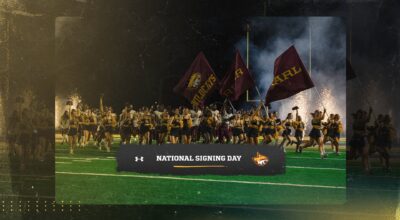Suarez appeals FIFA ban, bite verdict
Published 2:10 pm Monday, August 11, 2014
By Graham Dunbar
AP Sports Writer
LAUSANNE, Switzerland (AP) — Luis Suarez’s appeal of his FIFA ban for biting an opponent at the World Cup will be decided next week.
The Uruguay and Barcelona forward attended a six-hour hearing Friday before the Court of Arbitration for Sport and gave a statement to the court. He is trying to persuade a three-person panel to reduce his ban of four months from all soccer activity, along with nine Uruguay matches in official competitions.
The panel “informed the parties that it will issue its decision as soon as possible, probably before the end of next week.”
Barcelona, which signed Suarez from Liverpool after the World Cup ended, begins the Spanish league season in two weeks.
Suarez has admitted biting Italy defender Giorgio Chiellini’s shoulder during Uruguay’s 1-0 win in Natal, Brazil. FIFA’s sanction, which runs through Oct. 25, bars Suarez from training with his new teammates.
Lawyers for soccer’s world governing body declined to comment on the case.
Daniel Cravo, a lawyer for the Uruguay federation, didn’t attempt to predict an outcome.
“We know that it’s a hard case, so it’s impossible to make a prognosis on it,” Cravo said after the hearing.
Because Suarez acknowledged the bite, his legal team representing his club and national federation were unlikely to challenge FIFA on the facts of the case.
“I deeply regret what occurred,” Suarez wrote on Twitter on June 30, days after FIFA announced the sanctions. “(The) truth is that my colleague Giorgio Chiellini suffered the physical result of a bite in the collision he suffered with me.”
Suarez’s lawyers from the Uruguay soccer association and Barcelona were expected to focus on persuading the panel that the sanctions are too severe.
The international group of soccer player’s unions, FIFPro, has criticized the four-month ban as an infringement of Suarez’s right to work.
On Friday, FIFPro urged the court to ease the sanction by making parts of the bans conditional on future good behavior and rehabilitation.
“The educative nature of the sanction mentioned by FIFA in the (disciplinary) ruling can be much better achieved by making it partially conditional, including the obligation for Luis Suarez to receive treatment,” the union said in a statement.
Suarez has trained alone with a private coach while he’s barred by FIFA from Barcelona’s stadium and practice grounds.
FIFA did allow Suarez to take a medical to complete his reported $126-million transfer from Liverpool last month on a five-year contract. Suarez’s ban of nine international matches is one more than FIFA imposed in 1994. World Cup on Italy defender Mauro Tassotti for elbowing a Spanish opponent in a quarterfinal. That altercation also was missed by match officials.
Suarez’s confession changed his original version of what happened. He had denied biting Chiellini in a June 25 letter to the FIFA disciplinary hearing.
“After the impact … I lost my balance, making my body unstable and falling on top of my opponent,” Suarez wrote then.
FIFA’s disciplinary committee stated in its verdict that Suarez showed no remorse or awareness of having committed an offense. It rejected a proposal to impose a six-match international ban.
FIFA president Sepp Blatter later suggested the disciplinary panel took into account two previous cases of Suarez biting opponents, when playing for Ajax in 2010 and Liverpool last year.
FIFA disciplinary head Claudio Sulser insisted his panel did not made an example of Suarez.
“One thing I mentioned in my capacity as the chairman is we don’t need to impose an exemplary sanction,” Sulser said at a news conference in Rio de Janeiro, “we need to have justice.”
CAS verdicts can be unpredictable, with each case panel composed of a different team of judges.
FIFA has sustained some defeats at the court, notably when CAS overturned former presidential candidate Mohamed bin Hammam’s life ban in 2012, and some sanctions have been reduced.
Last year, the court cut a one-year ban to six months for Morocco defender Abderrahim Achchakir for “misconduct against match officials” in a World Cup qualifying match.
In a rare ruling in March 2012, the Swiss Federal Tribunal threw out a “fundamentally unlawful” threat to ban Brazilian midfielder Matuzalem from any soccer activity, which was imposed by FIFA and had been upheld at CAS.
Suarez could later challenge the CAS verdict at the Swiss federal court, which is a much longer process.
Currently, Suarez’s ban expires Oct. 25 — the same weekend that Barcelona will visit Real Madrid in the first “clasico” of the Spanish league season. He’s also set to miss three of Barcelona’s six Champions League group matches.
After being sent home from the World Cup before Uruguay’s second-round loss to Colombia, there’s eight matches of his competitive internationals ban still to serve. That includes Uruguay’s defense of the Copa America, kicking off next June in Chile, and the start of 2018 World Cup qualifying matches next year.
“Maybe Suarez could be prevented to play until 2016,” lawyer Cravo said, “which is a long journey for a player who is already 27 years old.”
Boris Heger in Lausanne, Switzerland, contributed to this report.





